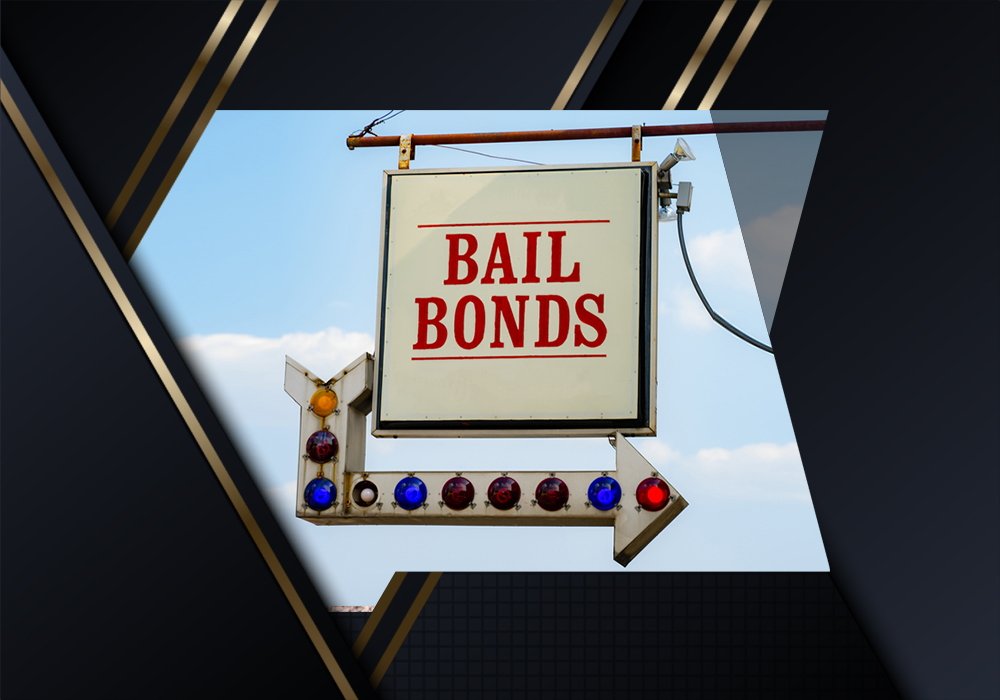Why Trusting a 24-hour bail bondsman Provides Peace of Mind
How to Browse the Intricacies of a Bail Bond: Tips for First-Time Users
Maneuvering the complexities of a bail bond can be frustrating for those unknown with the process. Several newbie individuals locate themselves puzzled by the terminology and obligations entailed. Recognizing key principles such as costs and collateral is vital. Furthermore, picking a trustworthy Bail bondsman can greatly relieve the trip. Nevertheless, there are important aspects and typical mistakes that can complicate issues even more. Checking out these can give valuable insights for anybody facing this difficult situation.
Recognizing Bail Bond Terminology
What essential terms should one recognize with when traversing the globe of Bail bonds? Recognizing basic terminology is necessary for navigating Bail bonds efficiently. The term "Bail" describes the amount of money or property required to safeguard a defendant's release from custodianship, guaranteeing their look in court. "Bail bond" denotes a contract in between the defendant, the court, and a bondsman, who gives the Bail amount for a fee, generally 10-15% of the complete Bail. "Security" might be needed, entailing assets pledged to guarantee repayment if the defendant falls short to show up (bail bonds service). "Premium" is the non-refundable cost paid to the bondsman for their solutions. In addition, "forfeiture" occurs if the accused does not abide by court looks, resulting in the loss of the Bail amount. Knowledge with these terms encourages people to make educated decisions during the Bail process
The Different Kinds of Bail Bonds
When considering the various options for safeguarding an accused's release, one might question the various sorts of Bail bonds available. One of the most common kind is the surety bond, where a bondsman guarantees the full Bail quantity for a fee, normally around 10%. One more option is a money bond, which calls for the defendant or their household to pay the whole Bail quantity in cash upfront, refundable upon court appearance. Property bonds entail using property as collateral to safeguard the Bail amount. In addition, some jurisdictions provide government bonds for government offenses, which have specific demands. Ultimately, there are migration bonds for people detained by migration authorities. Each type serves a distinct function and may vary regarding cost and requirements, making it vital for novice users to understand their options thoroughly prior to continuing.
The Bail Bond Process Explained
Understanding the bail bond procedure is vital for anyone steering the judicial system. When a person is jailed, a court establishes a Bail quantity based on the extent of the fees and the accused's flight danger. If the Bail is expensive, a bail bond can be gotten with a qualified bondsman. The defendant or co-signer usually pays a non-refundable cost, usually around 10% of the overall Bail quantity.
When the bond is safeguarded, the bail bondsman guarantees the court that the offender will stand for all set up hearings. If the defendant fails to appear, the bondsman is accountable for paying the full get more info Bail amount, which can bring about recovery efforts to find the person. Throughout this process, communication with the bondsman is vital, as they give guidance and assistance to assure compliance with court demands and obligations.
Your Rights as a Co-Signer
Co-signers play a vital role in the bail bond process, as they are legally responsible for making sure that the offender sticks to the problems of the bond. This duty includes details rights that co-signers should be mindful of. To begin with, co-signers deserve to obtain full disclosure regarding the terms of the bond, consisting of charges and possible responsibilities. They additionally deserve to be informed if the accused breaches any kind of conditions of the bond, such as stopping working to appear in court.
Additionally, co-signers can request a copy of the bail bond agreement for their documents. They are entitled to recognize the repercussions of their economic dedication, including the possibility of being held responsible for the total of the bond if the defendant does not abide. Inevitably, co-signers deserve to withdraw their assistance under specific conditions, although this may require alerting the bail bond representative beforehand.

Common Errors to Stay Clear Of
Navigating the bail bond process can be complex, and co-signers commonly make numerous common blunders that can lead to issues. One major error is failing to check out the whole Bail arrangement, which might consist of essential terms and problems that affect their financial liability. Additionally, co-signers occasionally undervalue the value of recognizing the accused's situation, including their court days and prospective effects of non-compliance. One more frequent mistake is disregarding to keep communication with the bondsman, which can hinder the process if problems emerge. Co-signers might additionally ignore the monetary implications of Bail, not completely comprehending the charges included or the opportunity of losing security. Ultimately, they could think that as soon as Bail is uploaded, their duty ends, not understanding that they remain accountable till the case is resolved. Preventing these pitfalls can significantly alleviate the bail bond experience for newbie individuals.
Often Asked Inquiries

Exactly How Do Bail Bond Firms Determine the Costs Amount?
Bail bond companies normally establish the premium quantity based on the complete Bail quantity, the risk associated with the offender, and the business's policies - bail bonds service. Elements like the offender's criminal background and flight threat also influence this choice
Can I Bargain the Terms of a Bail Bond?
The opportunity of negotiating bail bond terms differs by company. Some bondsmen might offer flexibility, while others adhere strictly to established guidelines. It is advisable to talk about alternatives directly with the bail bond agent for quality.
What Happens if the Offender Misses Their Court Day?
If an offender misses their court day, a bench warrant may be provided for their apprehension. In addition, the bail bond may be surrendered, causing economic repercussions for the co-signer and possible lawful complications for the accused.
Are Bail Bond Charges Refundable After the Case Wraps up?
Bail bond fees are generally non-refundable, no matter the instance end result. This charge compensates the bond agent for the service of securing the offender's release, covering threats and administrative expenses associated with the process.
Can I Make Use Of Collateral Other Than Home for a Bail Bond?
The concern of using collateral past building for a bail bond frequently develops. Numerous bail bond representatives approve different types of security, such as lorries or useful things, however plans may vary by company and jurisdiction.
"Bail bond" denotes an agreement in between the accused, the court, and a Bail bondsman, who provides the Bail amount in exchange for a fee, typically 10-15% of the complete Bail. The most usual kind is the surety bond, where a Bail bondsman guarantees the complete Bail amount in exchange for a cost, normally around 10%. If the Bail is expensive, a bail bond can be obtained via a licensed Bail bondsman. Co-signers play an important role in the bail bond procedure, as they are legitimately responsible for guaranteeing that the offender adheres to the problems of the bond (bail bonds service). Bail bond companies generally establish the premium quantity based on the complete Bail quantity, the danger associated with the defendant, and the business's policies